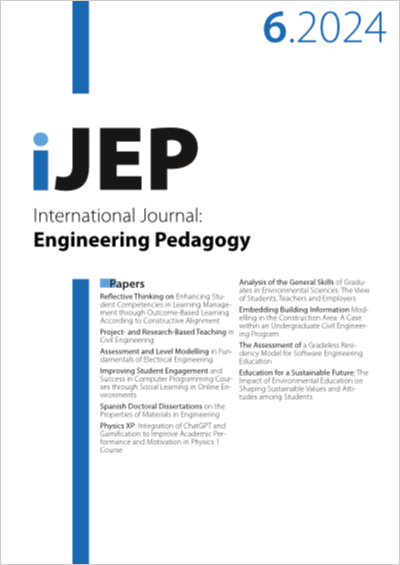Improving Student Engagement and Success in Computer Programming Courses through Social Learning in Online Environments
DOI:
https://doi.org/10.3991/ijep.v14i6.48705Keywords:
E-Learning, Collaborative learning, computer science education, student engagement, Learning OutcomeAbstract
This paper addresses the necessity to enhance the effectiveness of online learning (OL) environments by examining the influence of social interactions on learner motivation, engagement, and success, specifically focusing on online computer science education (CSE). Acknowledging the limitations of peer-to-peer and learner-to-teacher interactions on online platforms, this paper delves into the potential of social learning (SL) organized through learner groups, communities, or networks to significantly enrich the learning experience. To test the hypothesis that SL positively impacts student outcomes, an experiment was conducted with 49 engineering students divided into two groups. The first group undertook an object-oriented programming course in C++ using the Moodle platform, while the second group, in addition to the online course, participated in asynchronous group activities through forums and synchronous interactions via chat. The results reveal a notable positive impact of SL on student outcomes, with participants in the second group reporting higher satisfaction levels and achieving superior results compared to those in the first group. The findings underscore the significance of integrating social interaction into OL environments, with potential implications for enhancing the overall quality of education and student performance in society.
Downloads
Published
How to Cite
Issue
Section
License
Copyright (c) 2024 Hiba Gharbaoui, Khalifa Mansouri, Franck Poirier

This work is licensed under a Creative Commons Attribution 4.0 International License.



